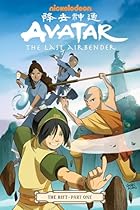Most of my energies continue to be focused on the post-Battle of New Orleans book, but I do manage to squeeze in some reading time.
28) Daughter of the Sky, by Michelle Diener.
I tend to be wary of self-published books unless I have a lot of experience with the author. There's too much poorly edited or downright unedited work out there, and I'm sensitive to such things. As noted in my post on Rita Book #7, for me bad grammar or inept writing in a good story is like a singer who doesn't have the range for it attempting "O Holy Night" or "The Star-Spangled Banner." It's nails-on-a-chalkboard painful, and I can't hear past the voice to the story or song.
But Daughter of the Sky got a positive review from a site I trust, and I decided to give it a try largely for the sake of the unusual setting. I'm glad I did. While my inner copyeditor "tsk-tsked" in a few spots, it was smoothly written overall, and the story of an English girl orphaned in a shipwreck, taken in by the Zulu, and then caught in the middle of the Anglo-Zulu war is thoughtfully told. At least to my white, American eyes it seemed to avoid the most obvious pitfalls--the British are clearly in the wrong as the colonialist power invading a sovereign nation under a flimsy pretext, but the individual British characters are varied and often sympathetic, and the Zulu are portrayed sympathetically without ever seeming like Noble Savages.
My one major issue with the book echoes that of the review I linked above--the resolution feels a bit too hasty, and I would've liked to see more about how the hero and heroine coped with the trauma they experienced in the war and built a life together.
29) Journal of a Residence on a Georgian Plantation - 1838-1839, by Fanny Kemble.
In 1834 the noted English actress Fanny Kemble left her stage career behind to marry an American, Pierce Butler, apparently unaware that he was heir to plantations in Georgia, and therefore to slaves--or at least without having fully thought through the implications. I'm not clear on that part. In any case, they spent the winter and spring of 1838-39 on their rice and cotton plantations on the Georgia Sea Islands, and Kemble was appalled by what she saw and learned. I don't have time or space to do the book justice here, but I'd recommend it to anyone interested in a first-person account of American plantation life and the conditions of slavery by a thoughtful, sensitive observer. (Though in proper 19th-century style, she often stereotypes and patronizes even when she's being remarkably forward-thinking. E.g. when she's saying there's every reason to believe blacks could take their place as equal, self-supporting and upstanding free citizens if only they had more education, better nutrition, etc., she says something along the lines of, "Look at the Irish! You should hear how they're talked about in England, and just a generation or two in your country makes them a thrifty, industrious addition to your laboring class!" And as a descendant of Southern "poor whites" myself, I bristled a bit at some of her descriptions of my people.)
30) Avatar: The Last Airbender - The Rift Part 1, by Gene Luen Yang, Michael Dante DiMartino, Bryan Konietzko, Dave Marshall.
An altogether lighter read...albeit still focused on culture clashes. More filling in the gaps between Avatar and The Legend of Korra, and it looks as though this series will focus on Toph as the previous one did on Zuko.

No comments:
Post a Comment